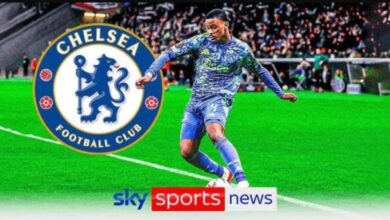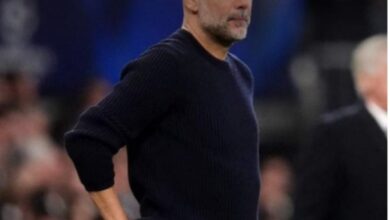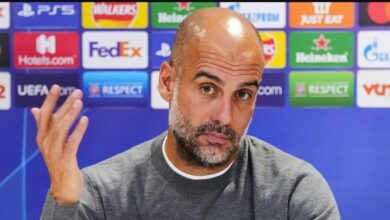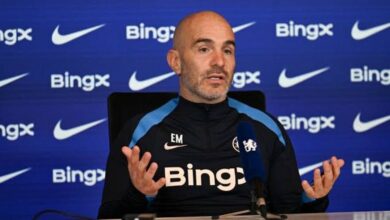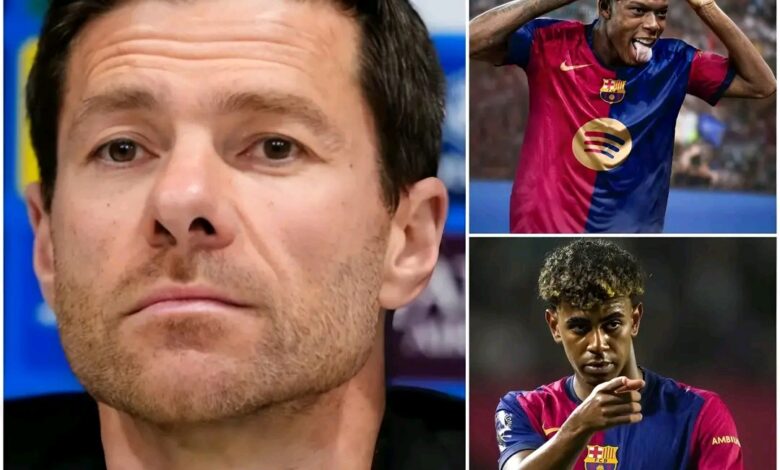
Real Madrid manager Xabi Alonso, widely respected for his calm demeanor and tactical intelligence, unexpectedly stirred controversy during a routine pre-match press conference by aiming a thinly veiled verbal jab at archrivals FC Barcelona — a moment that quickly went viral and ignited a fierce debate across social media platforms.
The event took place during what was expected to be a standard media briefing ahead of Real Madrid’s preseason tour. However, things took a dramatic turn when Alonso was asked to comment on his club’s recent success in the summer transfer window. Rather than sticking to the usual diplomatic responses, Alonso saw an opening — and he took it. With a subtle smirk and a measured tone, he delivered a loaded comment that many immediately recognized as a direct reference to Barcelona’s recent failure to secure the signing of Spanish sensation Nico Williams.
Alonso stated:
> “At least we don’t enter the market with empty pockets and full promises.”
While he never explicitly mentioned Barcelona or Williams by name, the implications were obvious to everyone in the room — and to the wider football community. His words alluded to the very public and ultimately unsuccessful pursuit by Barça of Nico Williams, who had been heavily linked with a move to Camp Nou throughout the summer. Despite their interest, the talented young winger ultimately chose to renew his contract with Athletic Club, remaining in Bilbao and dealing a significant blow to Barcelona’s transfer ambitions.
The reaction was swift and explosive. Social media lit up almost instantly. Real Madrid fans praised Alonso’s boldness, flooding platforms like X (formerly Twitter) and Instagram with trending hashtags such as #EmptyPocketsBarca and #XabiShoots. For many supporters of Los Blancos, Alonso’s remark wasn’t just witty — it was a declaration of superiority, a reminder of Madrid’s financial strength and strategic edge in the transfer market.
But the story didn’t end there.
Just five minutes after Alonso’s remark began making waves online, the football world was rocked once more — this time by a surprising voice from the next generation. Barcelona’s 17-year-old rising star, Lamine Yamal, delivered a response that instantly turned the tide of the narrative. Without any images, emojis, or extended explanation, Yamal posted a short but powerful tweet:
> “Some clubs buy, we build.”
Those five words resonated deeply with the Barcelona fanbase and beyond. The tweet captured the spirit of the club’s long-standing philosophy of nurturing young talent through its famous La Masia academy — a legacy that has produced legends like Xavi, Iniesta, Messi, and Busquets. Within moments, the phrase #WeBuild began trending globally, as Barça supporters applauded the young winger’s courage and conviction.
The contrast between the two clubs’ ideologies couldn’t have been more apparent. On one side stood Real Madrid, a club historically associated with lavish spending and Galáctico signings. On the other was Barcelona, presenting itself once again as the club of ideals — one that invests in homegrown talent and builds for the future rather than simply buying immediate success.
Yamal’s tweet not only captured the hearts of the fans but also earned praise from some of the most iconic figures in Barça’s history. Legendary former captain Carles Puyol retweeted the post in support, while the ever-revered Andrés Iniesta added his voice by posting:
> “Well said, Lamine. We are not just a club. We are a legacy.”
Meanwhile, within the Real Madrid camp, responses to Yamal’s post were reportedly mixed. According to sources close to the team, Alonso himself read the tweet, nodded slightly in acknowledgment, and simply muttered, “Touché,” before exiting the room — a subtle but telling sign that even he recognized the power and precision of the young player’s message.
Soon after, media outlets both in Spain and internationally dubbed the exchange “The Twitter Clásico.” Analysts, commentators, and fans spent hours dissecting the digital duel, arguing over which message had landed the heavier blow: Alonso’s sharp criticism or Yamal’s eloquent rebuttal.
Some called it a clash of generations — a seasoned manager using old-school press room tactics versus a fearless teenager using modern social media to defend his club’s honor. It wasn’t just a spat between two football personalities; it was a symbolic showdown between different visions of the sport itself.
Even Nico Williams, the player unintentionally caught in the middle of this controversy, found himself back in the spotlight. Keen-eyed fans noticed that he briefly liked both Alonso’s and Yamal’s posts, only to unlike them moments later — a move that set off a wave of speculation. Was it a slip of the finger, or a moment of indecision about where his loyalties lay? The football internet had a field day theorizing.
In an age where football rivalries extend far beyond the pitch, this episode underscored how narrative, branding, and digital presence play an ever-growing role in shaping the game. What began as a seemingly routine press appearance turned into a dramatic symbolic battle between two giants of Spanish football — a confrontation that pitted financial might against developmental pride, and tradition against evolution.
One undeniable truth remains: even before the first whistle of the 2025/26 LaLiga season, the drama is already in full swing. No goals have been scored, no yellow cards issued — and yet, the first shots in the latest chapter of El Clásico have already been fired.
Because in the modern era, football’s fiercest battles are no longer confined to 90 minutes on a field — sometimes, all it takes is a microphone or a tweet.
